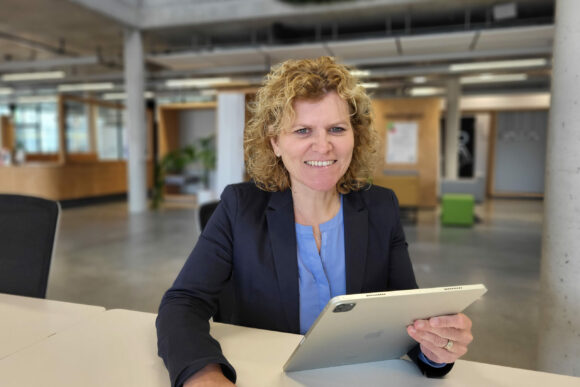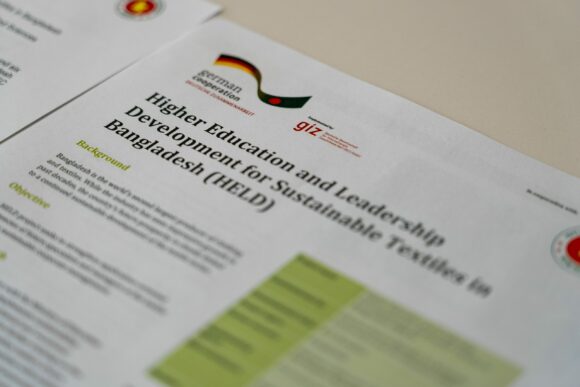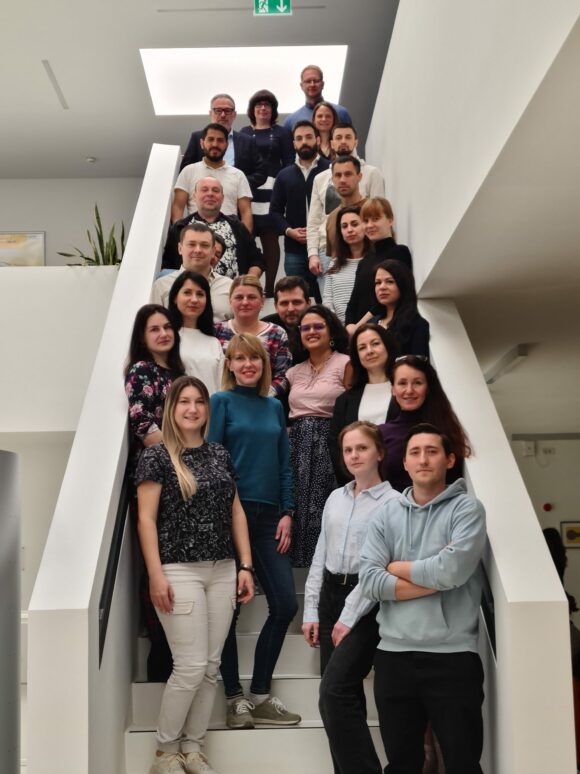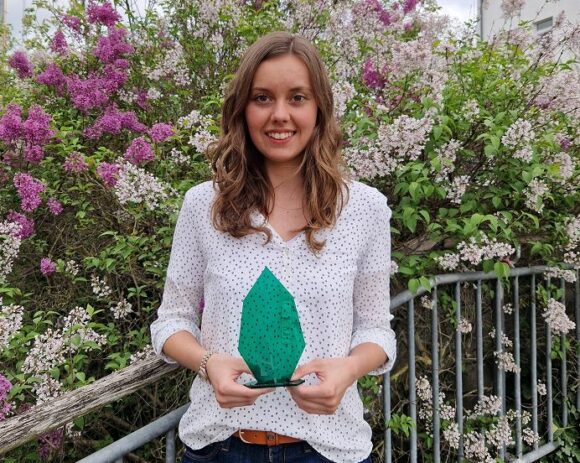The Institute for Sustainable Water Systems (inwa) would like to use a new format aimed purely at scientists from its own university to promote methodological expertise, for example in project management within research, while at the same time familiarizing researchers with the university’s processes and partners. The “Learning Bites” set up for this purpose take place once a month in person, where researchers can optimize their methodological approaches in research projects and increase the transfer of results.

In 2024, the series of events is based on the normal life cycle of a research project – from project idea and application to publication and implementation as well as the transfer of results into practice.
As different as the project ideas at our university are, the phases that research projects generally go through are comparable. We want to impart the best possible methodological knowledge for precisely these often very similar processes – phase by phase and in a very targeted manner.”
Prof. Dr. Manuela Wimmer, initiator
“There are three main approaches to funding applications,” says Prof. Günter Müller-Czygan, Head of inwa and himself a Learning Bites lecturer, describing the sometimes arduous path to finally successfully completing a funding procedure. One way is via a new idea that is developed by a researcher or in a team, then a suitable funding program has to be found. Sometimes there are thematic calls for funding, in which case a new idea has to be developed. Or a company has a topic and is looking for a scientific partner, and the path to the funding application is taken together.
Inwa has experts for all three paths and for special funding programs, who will share their secrets of success in the Learning Bites.”
Prof. Günter Müller-Czygan
” This focus is also the common thread that guides the thematic design of the Learning Bites.

Institute for Sustainable Water Systems at Hof University of Applied Sciences (inwa);
Image: Hof University of Applied Sciences;
Using internal expertise
The three-hour “Learning Bites” deliberately do not rely on external trainers, but instead draw solely on the expertise available in-house: “As a university, we have all the necessary knowledge ourselves to turn our research ideas into successful applications and effectively implement the subsequent projects – what we need to do is support and advise each other.”
A total of 12 speakers, usually researchers or the heads of internal staff units, are therefore firmly scheduled to pass on their knowledge “bit by bit” until the end of the year.
Getting to know the visions of others
The first event in the series has already taken place: Lecturers Prof. Dr. Manuela Wimmer and sustainability manager and research assistant Anja Grabmeier welcomed ten inwa research assistants to the kick-off topic “Idea-based project development”. “It was a successful start,” says the initiator enthusiastically. “I hadn’t expected how many synergies would arise within our university from this first meeting and how much we laughed together.”
“I immediately loved the idea of offering short, focused learning content and learning from each other. As a lecturer, I actively helped shape the first Learning Bite and look forward to being involved in future Learning Bites as a speaker or participant.”
Anja Grabmeier
The initial project ideas brought along were developed using the Frascati criteria, which are used to assess the eligibility of research projects for funding, and applying the “timeboxing” method, i.e. a clear time frame for each task. Each participant presented their idea and practiced “pitching”, i.e. presenting their idea to an audience as convincingly as possible. This alone resulted in a number of new approaches: “People often don’t know what the other person is currently researching and it is all the more gratifying when new and joint project ideas immediately emerge,” says Prof. Wimmer.

Learning together – with laughter and joy!
The event was by no means just about learning and imparting skills. Rather, the focus is also on laughing together, getting to know each other, team building and having a good time at the “learning bites”: “It’s basically quite simple: you can hardly learn anything without fun and enjoyment,” says Prof. Wimmer. Her approach is also geared towards the guiding theme of sustainability: “This idea is omnipresent in everything I do and a real concern of mine. It is therefore always important to work out which of the global sustainability goals (SDGs) and aspects a project idea addresses from both the ecological and social dimension and that our event itself meets these requirements.” This is another reason why the “Learning Bites” only work with digital handouts, avoid paper wherever possible and also ensure a healthy diet through healthy breaks with fruit. Sustainability Manager Anja Grabmeier adds: “Sustainability can also be addressed through topics in research, but also in the way we conduct research. We’ve been looking at this intensively recently and have developed the OktoPus method.”
Application
Next up in the new series are the topics “Program-driven project initiation” (April 17), “Project outline and project proposal” (in May) and “Project kick-off and planning”.
If you would like to register for these or subsequent “Learning Bites”, you can do so now here at “Sharepoint”…










